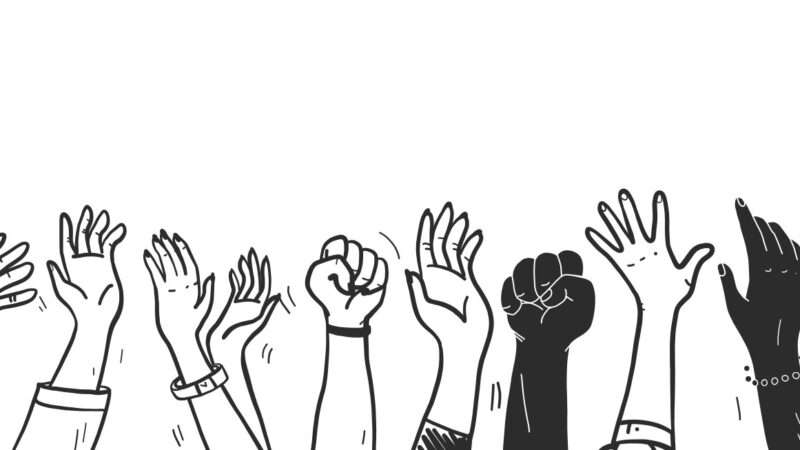The Monterey pine tree of California’s Central Coast has developed an ingenious method for propagating the species in a state bedeviled by irregular wildfire: The evergreen’s distinctive pine cones, sealed shut by a protective resin, open to release their seeds only in response to extreme heat. Competing brush having been newly cleared by fire, the serotinous sentinels are then better positioned to produce new growth.
Elections operate on a more regular schedule than California conflagrations, and those November Tuesdays don’t always rise to the level of catastrophe for an entire political party. But the surprise 2021 victory of GOP outsider Glenn Youngkin over heavily favored Democratic nominee Terry McAuliffe in Virginia’s gubernatorial race, along with a handful of other shock victories for Republicans and shock defeats for pet progressive causes, was greeted by many left-leaners in the political class as a potentially terrain-changing calamity.
“Democrats need to go back to school,” wrote Washington Post columnist James Hohmann. New York Times editorial board business and economics writer Binyamin Appelbaum produced a damning post-election video pointing out that “it is in the blue states where affordable housing is often hardest to find, there are some of the most acute disparities in education funding, and economic inequality is increasing most quickly.”
Irascible Democratic strategist James Carville was even more blunt, telling PBS anchor Judy Woodruff, “What went wrong is this stupid wokeness.” Carville elaborated: “Don’t just look at Virginia and New Jersey. Look at Long Island, look at Buffalo, look at Minneapolis. Even look at Seattle, Washington. I mean, this defund-the-police lunacy, this take Abraham Lincoln’s name off of schools…people see that, and it…just really [has] a suppressive effect all across the country [for] Democrats. Some of these people need to go to a woke detox center or something. They’re expressing language that people just don’t use, and there’s a backlash and a frustration at that.”
The parties of first-term presidents tend to take a drubbing at the ballot box in non-presidential-election years. Since World War II, only one rookie president has seen his party gain congressional seats in his first midterm elections: George W. Bush in 2002, at the height of post-9/11, pre–Iraq War fever, and his GOP gained just eight seats in the House of Representatives. The other 11 first-term presidents watched their parties lose an average of 29 House seats. Three of the last four presidents incurred three of the top four losses: Barack Obama’s 63 in 2010, Bill Clinton’s 52 in 1994, and Donald Trump’s 40 in 2018.
It makes intuitive sense that elections ostensibly having nothing to do with the White House are increasingly becoming referenda on the country’s chief executive. The federal government has metastasized so quickly that the size of the federal deficit alone in fiscal year 2021 ($2.77 trillion) is larger than the entire amount of federal spending every year in the country’s history through 1997, adjusted for inflation.
The commander in chief now has unchecked power to drone U.S. citizens to death or detain them indefinitely without criminal charge. His surveillance state routinely vacuums up information about the communications activities of all of us, warrant or no. The administrative state he oversees has become a free-floating enforcer of presidential whims, such as the national eviction moratorium that the Centers for Disease Control and Prevention maintained for 12 months and the vaccine mandate that the Occupational Safety and Health Administration imposed on private businesses in November.
As power in the capital has swollen, civic and journalistic activity in the hinterlands has withered, so political energy and attention during our apprehensive times inevitably fixate on the personality at 1600 Pennsylvania Avenue. It’s no wonder that midterm swings have gotten larger, or that state and local politicians try to make their campaigns about the sitting (or even former) president.
But it’s a mistake to treat these developments as a fixed law of nature, grinding along irrespective of individual free will. For elections to swing from one party to another, you need swing voters. And as much as they are routinely maligned by those who make their living in politics, these swing voters have a name: the independents.
Even the narrowest definition of this bloc—people who vote for third-party and independent candidates—reveals an outsized influence on elections. For example, nontraditional presidential voters shrank by 3.9 percentage points between 2016 and 2020, from 5.7 percent (including 3.3 percent for Libertarian nominee Gary Johnson) to 1.8 percent of the electorate. The Democratic nominee’s share of the popular vote, meanwhile, climbed by 3.1 percentage points; Trump gained 0.8 percentage points. Exit polls in 2020 showed that 59 percent of major-party returnees voted for Biden.
This trend was reflected not just in 2020 pre-election and exit polls of 2016 third-party/independent voters but also in the attitudes of more broadly defined “independents.” Gallup, Pew, and several other public opinion organizations ask people to describe their political affiliations (Democratic, Republican, or independent), and that question produces a number considerably larger than 5.7 percent. In the case of Gallup, which has been asking the question since 1988, “independent” has been the No. 1 answer in every survey since 2013, reaching an all-time high of 50 percent in February 2021.
Trump narrowly beat Hillary Clinton among self-described independents in 2016, 43 percent to 42 percent, according to Pew. But throughout his tumultuous presidency, this bloc never once gave him a job approval rating higher than 47 percent, even as nine out of 10 Republicans routinely gave their standard-bearer a thumbs-up.
Biden started his term with an approval rate among independents that Trump could only dream of: 61 percent. But from there it plummeted, all the way down to 34 percent as of October 2021. In our negatively polarized times, when party members stand by their man in opposition to the other team, overall approval hinges on the attitudes of independents. The 46th president has had the worst first-year approval ratings, in the low 40s, of any modern president—except Donald Trump.
One reason some political commentators are forever writing articles headlined “The Myth of the Independent Voter” is that the bloc does not necessarily have a coherent and predictable set of ideological or political-consumer preferences. Furthermore, the group contains internal clumps that usually vote for the same party across elections. Both critiques are true. But they miss an important point.
Government overreach—in overall size, in meddling with private transactions, in regulating our intimate decisions, in punishing disfavored groups—can be likened to a forest fire: Eventually, it will burn high and hot enough for even the apolitical to feel the flames. We will be discovering and arguing over exactly what unsealed the rosin among the independent voters who seeded Democratic defeats in November 2021. But political professionals of all species need to relearn one clear lesson: If you make the government feel too dangerous, a corrective bloc of voters will pour cold water on your face. At a time of bipartisan big-government populism, such small victories may be the only thing that keeps us going.
The post The Independents Strike Back appeared first on Reason.com.
from Latest – Reason.com https://ift.tt/33Jzgif
via IFTTT


